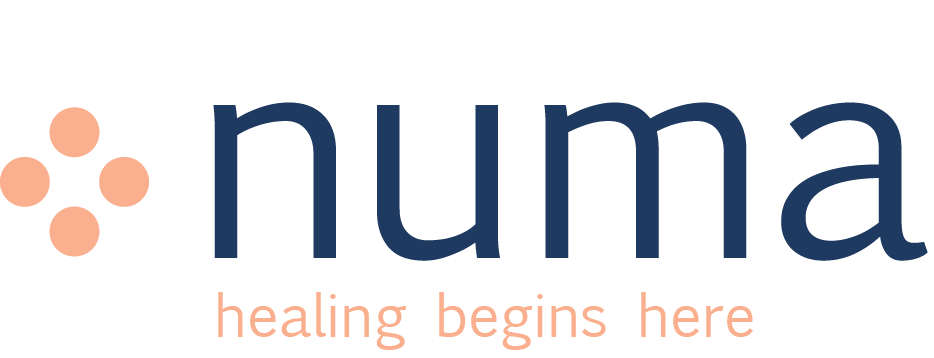The heart is one of the most central and important organs of the body. So, of course, alcohol and substance abuse affects the heart, too. Your heart health can influence the way your mind and body function. When these certain neurological and biochemical changes take place in a person’s body after prolonged alcohol and substance […]
Throughout the country, a concerning meth drug abuse epidemic has taken hold, posing a major threat to public health and well-being. Managing recovery from methamphetamine addiction can be challenging, but NUMA Recovery Centers is here to help. We offer valuable insights on what to expect during meth detox and how to detox from meth safely.
In this guide, we'll break down important aspects of meth detox, providing you with the knowledge you need to make informed choices on your path to recovery. Continue reading to find out more.
Meth Detoxing Guide
Meth detox is the process of removing the substance from your body and managing withdrawal symptoms. Withdrawal symptoms typically peak within the first few days and can last for weeks.
Symptoms of withdrawal can vary widely and include fatigue, increased appetite, anxiety, depression, and strong cravings. Meth withdrawal may also lead to severe depression and other mental health challenges.
Due to the complex nature of meth addiction, consulting with rehabilitation specialists is crucial to finding the most suitable detox and treatment. Consulting with professionals is vital to ensure a safe and effective meth detox experience.
If you or someone you know is struggling with meth addiction, or perhaps seeking help from a failed at-home drug detox, the first step towards reclaiming a healthier life is to talk with a trained and licensed professional.
Meth Detox Timeline
Meth detox timelines vary due to individual factors like substance use history and mental health. Below is a rough timeline of what to expect:
-
Early Hours: Withdrawal symptoms often start within a few hours of the last use. Fatigue, increased appetite, and drug cravings can be intense.
-
Days 1-3: The initial few days can bring strong cravings, anxiety, and mood swings. Psychological symptoms can also be challenging.
-
Days 4-10: Depression and fatigue may intensify. Medical professionals can provide support and monitor your condition.
-
Weeks 2-3: Physical symptoms start to subside, but psychological challenges persist. Substance abuse counseling and behavioral therapies play a crucial role in moving forward.
-
Beyond Week 3: Methamphetamine withdrawal symptoms can extend for several weeks or even months. Support and treatment are essential to manage this phase.
When considering detoxing from meth, it's advisable to consult with rehab experts who can walk you through the specifics of the detox timeline and provide tailored support.
Meth Withdrawal Symptoms
Crystal meth, a potent stimulant, can lead to meth addiction. Withdrawal symptoms vary among individuals but can be categorized into physical and psychological signs.
Physical Symptoms:
-
Fatigue and increased appetite are common.
-
Meth users may experience excessive sleepiness as their body tries to recover.
-
Physical pain and discomfort can emerge, leading to a sharp decline in energy levels.
Psychological Symptoms:
-
Depression and anxiety are frequently experienced during withdrawal.
-
Irritability and mood swings can make daily life challenging.
-
Methamphetamine withdrawal can also trigger intense drug cravings.
The degree of these symptoms can affect each person differently. Some may experience minimal discomfort, while others may face more severe conditions. For those struggling with crystal meth addiction, health professionals can provide the necessary guidance and medical supervision to manage withdrawal symptoms effectively
Home Detoxing from Meth
Many meth users consider home detoxing as a cost-effective alternative to medical detox. While some may attempt self-detox methods, it's essential to understand the potential risks involved:
At-Home Detox Methods:
-
Gradual reduction: Some meth users taper down their usage slowly to manage withdrawal symptoms.
-
Over-the-counter remedies: Individuals may use OTC medications for symptom relief.
-
Herbal supplements: Some herbal supplements are believed to help with meth withdrawal, although scientific evidence is limited.
However, attempting the methamphetamine withdrawal process at home poses serious risks. Self-medicating can lead to severe health complications or worsen withdrawal symptoms. The crystal meth withdrawal process requires proper medical attention and supervision to ensure safety and success.
Consulting with a medical practitioner or seeking treatment from a reputable drug rehab is the best way to approach meth detox. Medical professionals can provide personalized detox treatment plans, which may include family therapy, support groups, or outpatient and inpatient treatment options.
Medical Detoxing from Meth
When it comes to meth addiction treatment, medical detox stands as the safest option, approved by the Mental Health Services Administration.
This specialized form of detoxification is conducted under the supervision of medical professionals, ensuring a smoother and more comfortable recovery process. Working with licensed and reputable treatment facilities is vital to a positive detox experience.
Through their expertise, you'll receive the necessary medical attention and counseling to address not only the physical aspects of meth addiction but the underlying causes as well.
Do You Have a Methamphetamine Addiction?
Check out these questions and answer them as honestly as you can.
-
Have you ever experienced intense cravings for methamphetamine?
-
Do you find yourself using meth frequently?
-
Do you continue using meth despite its negative impact on your health and relationships?
-
Have you noticed a decline in your mental health? Do you experience severe depression and anxiety, suicidal thoughts, panic attacks, and other mental health conditions?
If you answered "yes" to a majority of these questions, it's possible that you may have a methamphetamine addiction. This condition can significantly impact your physical and mental well-being.
It's important to seek help from a licensed treatment facility to properly assess your situation and guide you toward a personalized treatment program that can help you overcome your addiction.
Can NUMA Assist with Meth Detoxing?
Yes! NUMA is here to assist you in starting your recovery journey from drug addiction. With the support of licensed specialists, excellently maintained treatment facilities, and top-tier programs, we can help you get on track today toward a happier and healthier life.
Contact us today to learn about how we can help you through this process.
What is Aftercare? Aftercare programs are one of the most important parts of the recovery process. They include any type of care offered after the detox or residential treatment. Now that you’re sober, aftercare programs focus on how to keep it that way. They offer tools, strategies, resources, and support networks to make sure you […]
Opioid misuse has reshaped the landscape of public health in the United States, touching urban, suburban, and rural communities alike. In cities like Los Angeles—where access to prescription medications is widespread and stressors are high—opioid addiction has become an ongoing crisis that affects individuals, families, and the healthcare system at large. Many people still associate […]



